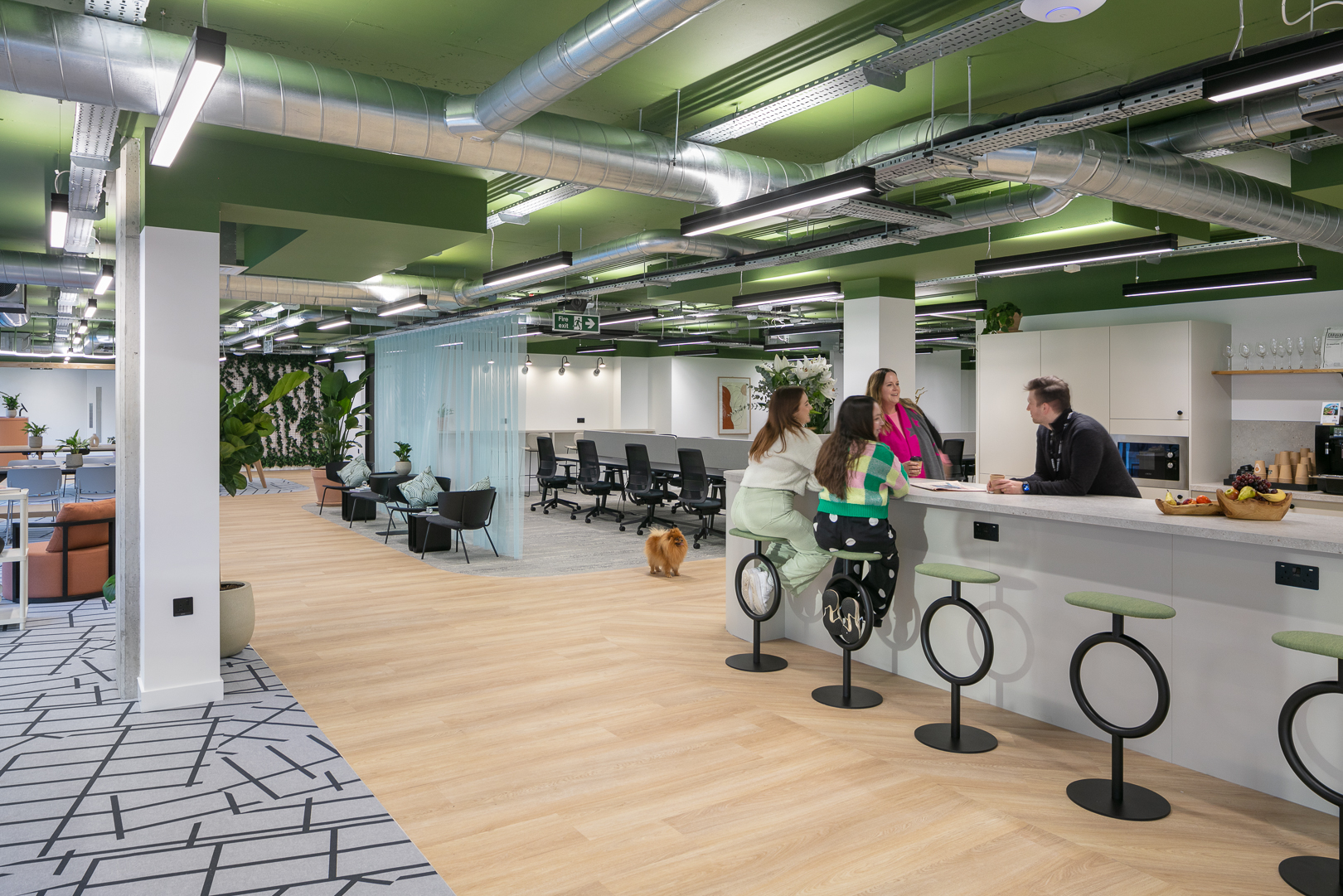
Break free from the solopreneur mindset. When and how do you scale a business?

You started this business because you love what you do. Maybe you’re a designer, a coach, a consultant – whatever it is, you’re great at it, and people want what you offer. In the beginning, it was exciting. Every client, every sale, every late-night work session felt like building something that was yours.
But as the months (or years) roll by, something shifts. The inbox is never empty. The to-do list grows faster than you can tick things off. You wake up thinking about work, go to bed thinking about work, and somewhere along the way, the thing you loved starts feeling like a never-ending grind.
If you’re feeling that, you’re not alone. Most solopreneurs hit this stage – the point where passion alone isn’t enough to keep things running smoothly. You’ve outgrown doing everything yourself, but the idea of scaling brings a whole new set of worries. Hiring feels expensive. Delegation feels risky. Automation sounds like losing the personal touch.
According to Jonny and Dan, the founders of Spacemade, “Going from zero to one employee is the hardest step”. But, there are some great rewards after making that step.
In this article, we take a look at how you can shake that solopreneur mindset and open yourself up to scaling sustainably, whether that’s hiring now or just working in a more efficient way.
Recognising the signs that it’s time to scale
The early stages of running a business are often marked by long hours, wearing multiple hats and pushing through challenges alone. But at some point, what worked initially starts to hold you back. The business demands more than one person can manage, and refusing to adapt can mean missed opportunities or burnout.
If you’re not sure if scaling a business now is the right thing to do, then these might be some telltale signs that you’re ready for it.
- You are constantly at full capacity and turning down work because there is no time left in the day.
- Burnout is creeping in and exhaustion is replacing excitement.
- You are spending more time on admin than growth. When customer emails, invoices and scheduling take up more time than actual revenue-generating work, it is time to rethink priorities.
- You have had to say no to big projects or collaborations because you are already overwhelmed, your business is limiting itself.
- You have a massive gap in a skillset that you can’t fill yourself.
If any of these sound familiar, it’s probably time to explore solutions that allow you to scale without sacrificing quality or control.
Breaking free from the solopreneur mindset
Scaling is as much about mindset as it is about strategy. Many solopreneurs believe they’re the only ones who can do things properly. The fear of handing over responsibilities, hiring the wrong person or losing quality control keeps many stuck in a cycle of overwork.
There comes a time in every startup where business growth slows because one person can only do so much. If every decision, task and client request has to go through you, your business has hit its limit.
Simply, you have to make a shift from doing the work to leading the business. That means remaining mindful of the following.
- Building systems so work gets done consistently without you being involved in every step
- Automating repetitive tasks so you spend less time on admin and more on strategy
- Delegating effectively so you stop being the bottleneck
Being task-orientated is one of the main reasons businesses fail when trying to grow. Successful entrepreneurs aren’t buried in the day-to-day – they set up their businesses to run smoothly without their constant involvement. Often, your business scalability depends on your adaptability. The aim is to build a business that doesn’t collapse the moment you take a break.
How to scale sustainably with process optimisation and automation
Many solopreneurs assume scaling means hiring, but that only works if the business isn’t held together by manual tasks and improvised processes. Without proper systems, bringing in help just adds complexity.
Your first scaling step should be within your processes and operations. Basically, automation keeps things running smoothly, whether you’re working solo or focusing on team expansion. It removes bottlenecks, keeps customer experience consistent and makes sure new hires can step in without needing a full rundown of your personal ‘system’ (which, let’s be honest, might just be chaos with extra steps).
Key areas you can improve with process automation tools include:
- Client onboarding – Instead of manually sending emails, intake forms and scheduling links, set up automated workflows that handle everything for you.
- Invoicing & payments – Accounting software tracks payments and sends reminders so you’re not chasing invoices or wondering who still owes what.
- Email follow-ups – If you’re relying on memory to follow up with leads, it’s probably not happening. Scheduled email sequences do it automatically.
- Sales workflows – A CRM keeps track of customer interactions, automates admin and ensures no opportunities slip through the cracks.
Once you’ve refined your processes, you can then easily pinpoint where you have skill gaps, and that might be the areas you need to look at hiring for. And, the more streamlined your processes, the easier it is to scale. Automation doesn’t replace people, but it makes sure your business isn’t reliant on you doing everything manually. When you do hire, new team members can slot into a system that works instead of trying to figure things out as they go.

How to scale without hiring full-time employees
Hiring someone full-time is a big decision that comes with a responsibility to support them. You have to be 100% sure you’ll be able to pay this person every month. You’re going from being responsible for your own income and supporting your lifestyle, to being the provider for another person, and potentially their family too. It’s a lot to take on.
If you feel like you’re not perhaps ready to bring on a full-time team, that’s fair enough. On top of the financial commitment, the idea of managing staff, sorting payroll and figuring out employment contracts is enough to make any solopreneur run for the hills. The good news? You don’t need a full-time team to scale. You just need to stop doing everything yourself.
If you’ve taken the step of refining and automating your processes and you’re still feeling lost in a plateau, then it’s time to look for a temporary team member or two.
- Outsource non-core tasks – Virtual assistants and outsourcing can take over bookkeeping, customer service, social media and admin, so you can focus on running the business rather than being buried in it.
- Leverage part-time or contract workers – Hiring doesn’t have to mean a permanent commitment. Need help with marketing? Bring in a specialist for a short-term project. Struggling with customer support? Hire someone part-time. Build the team you need, when you need it.
The time will come when you need a full-time team member. Outsourcing or contractors is a great way to test the water. It’s almost like a trial run of working with other people on your own project – because it can be strange. This step will help alleviate some of the pressure you’re feeling and it gives you the chance to learn from your mistakes and put processes in place for when that big first hire comes.
When to hire your first team member (and who it should be)
At some point, outsourcing and automation will only get you so far. That’s when it’s time to make your first hire, and it has to be someone who can do what you can’t (or what you shouldn’t be doing anymore).
The biggest mistake solopreneurs make is hiring someone just like them. Your first recruit shouldn’t be another you, it should be someone who fills the gaps in your skill set.
As Johnny and Dan put it, “Hire people you want to work with, who know more about their areas than you do and who want to get their hands dirty. Startups are not for everyone.”
For example:
- If admin and logistics are eating up your time, hire an operations assistant. They’ll handle emails, scheduling and the never-ending list of small but essential tasks, so you can focus on strategy.
- If you’re great at the work but struggle to sell it, hire a sales or marketing specialist. Bringing in someone who’s good at generating leads and revenue scaling means you can stop relying on word-of-mouth and random referrals.
There is no hard and fast rule of which department you should hire first. Your mission is to plug the biggest gaps you can. Jonny told us, “Our first hire was a really good generalist who could fill a lot of gaps”. In a startup environment, a generalist can be hugely beneficial. Things are fluid in small businesses and can change fast. “In my view, having a start-up mindset is non-negotiable. Your first hire must be able to roll their sleeves up, get involved in areas that aren’t their specialism and be proactive”.
The best hires bring skills, expertise and fresh thinking that push the business forward. If they’re saving you time, making you money or doing something far better than you ever could, you’ve made the right choice.
Scaling the right way as a solopreneur without losing control
We don’t want to scare you, but only 8% of businesses manage to scale successfully. However, a business that relies on you for everything has limits, so you need to find a way of creating clear processes, using the right tools and finding the right people to grow without grinding you down.
When you feel you’re ready to make the shift from solopreneur to business owner, approach it with the thought of helping you work on the right things. If you’re stuck handling admin, chasing invoices or managing every client request yourself, business growth stalls because there’s no time left for strategy.
A good scaling strategy means:
- Documenting processes so tasks don’t live in your head
- Automating repetitive work so time isn’t wasted on manual tasks
- Outsourcing or strategically hiring so you’re not the bottleneck
- Hiring people who are good at the things you’re bad at
The more structure you put in place now, the easier it is to grow without losing control. When the business runs on systems instead of constant input from you, scaling stops being overwhelming and starts being sustainable.

Meet solopreneurs and entrepreneurs just like you
There’s nothing quite like being surrounded by like-minded people who are on the same journey as you. Co-working spaces, like Spacemade, are a great place to connect with business owners who have been through or are overcoming the same challenges as you.
And, when you finally do take the leap and make your first hire, you can use our office spaces and meeting rooms to keep that expansion going.
So you know we’re not making it up, you can try any of our Spacemade locations for free with a day pass.

MONTHLY NEWSLETTER THAT WILL HELP YOU GROW YOUR BUSINESS
Join 12,000 entrepreneurs who use Spacemade tips monthly to turn a one-man team into a successful business.




































